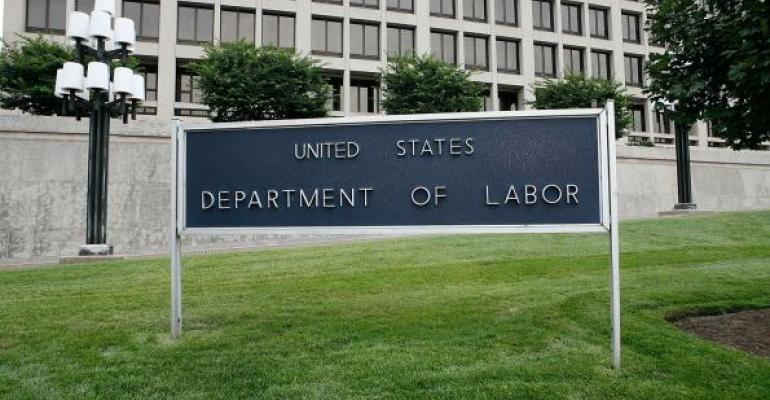By Benjamin P. Edwards and Christine Lazaro
(Bloomberg View) --Wall Street continues a doomed fight for brokers’ right to give bad advice to retirement savers, all in the hopes of propping up earnings. After three stinging courtroom defeats, the industry procured a presidential memorandum directing the Labor Department to review its ban on giving disloyal advice to investors.
The Donald Trump administration knows that such a delay will harm investors. The Office of Management and Budget's notice explains that the 180-day delay the Labor Department initially proposed would have reduced investor gains by $441 million in the first year and $2.7 billion over a decade. The current proposed 60-day delay will still hurt investors, reducing gains in the first year by $147 million and $890 million over a decade. Those figures understate the stakes because they assume that the rule will go into effect immediately after the delay. Cutting the rule entirely will cost investors billions more.
But another delay serves no purpose, because honest consideration will not change the rule. The Labor Department engaged in a long and thoughtful process to craft it, having already considered the financial industry’s positions restated in the memorandum. The department first attempted to protect retirement savers with a fiduciary-duty rule in 2010. Responding in good faith to industry concerns, the department delayed taking action on it so that it could hear from all stakeholders. Over the next several years, the Labor Department consulted with industry groups and investor advocates. The department proposed the current rule in 2015, then spent about a year listening to industry professionals once again -- through comment letters, meetings and public hearings.
The final fiduciary-duty rule emerged in 2016. To avoid sudden disruption, the department even granted the financial industry time to adjust, drawing the implementation period out over almost two years. Three different federal judges have rejected attempts to block or delay the Labor Department’s fiduciary rule.
The fiduciary rule addresses a longstanding problem for holders of retirement accounts. Currently, many financial advisers are held only to the suitability standard, allowing them to consider how much they stand to make when recommending investments. This kickback arrangement best explains many puzzling product purchases, such as why investors buy costly actively managed mutual funds when they regularly lose to low-fee, passively managed funds. Investors buy these losers because financial advisers recommend them. For too long, the law has allowed financial advisers to dangle bad choices in front of clients. This disloyal fishing for fees needs to end.
Today, many financial advisers operate under a quasi-fraudulent framework. They know that many retirement savers simply believe that their advisers will give them advice that suits their best interests. The fiduciary rule adjusts the law to match investor expectations.
Investors trust financial advisers because industry advertisements and smooth sales practices condition the public to believe in their financial advisers. Ads regularly cast financial advisers as trustworthy confidants. Sales experts even tell advisers to dress sharply to appear trustworthy and competent. If only appearance matched reality. When investors trust the wrong adviser, financial firms defend themselves as mere salespeople under laws that do not impose fiduciary duties.
The industry has argued that the Labor Department’s fiduciary-duty rule may limit investor choices in the marketplace and reduce access to financial advice. To be sure, the marketplace would change. Financial advisers who profit from exploiting conflicts of interest could no longer lead retirement savers into bad investments. This does not mean that investors would not otherwise remain free to purchase whatever investments they desire -- just that a financial adviser cannot lure investors toward choices that give disproportionate kickbacks to the adviser.
If the Trump administration succeeds in rolling back the fiduciary rule, the administration’s own analysis shows it will cost retirees billions and make retirement security more difficult for many investors to achieve. Even if blocked at the eleventh hour, the rule’s spirit will live on. Many financial firms have already committed to eliminating commissions for retirement accounts. Stalling out now will only reward the firms that profit the most off baiting investors into bad bets.
This column does not necessarily reflect the opinion of the editorial board or Bloomberg LP and its owners.
Benjamin P. Edwards is an assistant professor at Barry University's Dwayne O. Andreas School of Law. He will become an associate professor at the University of Nevada at Las Vegas's William S. Boyd School of Law in May.
To contact the authors of this story: Benjamin P. Edwards at [email protected] Christine Lazaro at [email protected] contact the editor responsible for this story: Brooke Sample at [email protected]
For more columns from Bloomberg View, visit Bloomberg view





